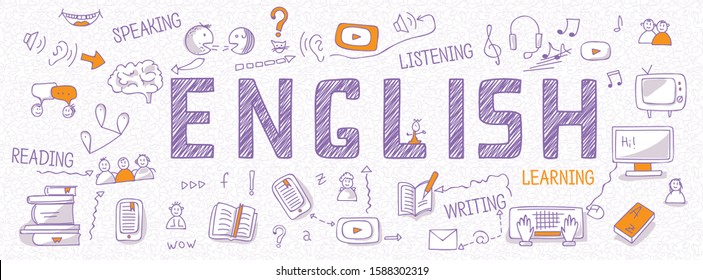The goal of improving spelling is vital to anyone since this question is relevant on a professional level. How to improve spelling? Even in adulthood, after many years of academic courses, a person can continue to perfect their writing. Here are the practical tips to achieve this goal.
Consult the dictionary to answer your questions
If you have questions about spelling a specific term, take some time to look it up in the dictionary. Through this frequent consultation of this information medium, you will also expand your vocabulary with new spelling words. If you are writing a text and you cannot check a question in the dictionary, choose a synonym for that word. This is a tip that can help you, for example, when developing a test answer.
A habit of reading aids one to write well
Reading has numerous benefits for those who become regular readers. Apart from reading books, one can also read newspapers, magazines, and blogs.
This reading habit strengthens the reader’s learning and is also an opportunity to identify a spelling mistake in a text. Having little time to read is one of the limiting beliefs that prevent you from cultivating this literary pleasure more often. However, a few minutes of daily reading are beneficial, even if they may seem insignificant in the short term.
Make a list
One of the best tips for improving spelling is to make a list of all the words you usually struggle to spell correctly and keep that list on you at all times. When you need to type or spell the word, you can refer to your list to make sure you spelled it correctly. Looking at the word and spelling or spelling it correctly regularly will make it easier for you to remember the correct spelling in the future, to the point that you no longer have to search for the word.
Spelling test to correct mistakes
You will find several pages on the Internet that offer the Spelling Test tool along with spelling bee hints as a practical resource for identifying possible errors and successes. Taking several of these tests will help you further reinforce this goal of improving spelling. This exercise will help you identify a common mistake to correct it.
Create a list of problem words
Make a spelling list of terms you know but regularly miss, and practice writing them ten times apiece, much like you did in elementary school. Use flashcards to practice a little each night, and remove the remarks once you’ve gained their trust.
Visualize yourself doing an activity to find a problem word
For example, if you have a hard time remembering how to spell edible, conjure and the image of the word in your head, imagine nibbling on the word. (Stupid activities sometimes tend to be the most effective).
Any work one puts in to improve your reading skills will pay off in a big way. With practice, you will discover that spelling becomes a lot easier.
Work on pronunciation
Many words change only for one more consonant, so invite the child to spell the words well. Thanks to the pronunciation, it is possible to understand how to spell a particular word correctly: callo-callus / polo-chicken, etc.
Spelling is essential in the professional field
Finally, it is important to remember something essential: accurate spelling is a fundamental issue. Curriculum vitae can be rejected in a selection process due to an error of these characteristics. It is a mistake to belittle this question because, to have the sincere purpose of writing better; it is convenient to give the value it has for this purpose.
Conclusion: As with most things in life, sometimes the best advice for improving spelling is to relearn how to spell from the beginning. You can try searching for writing workshops on university or college websites or take an introductory writing course at a local college. While these may not focus entirely on spelling, they may be able to teach you basic language rules. There are also several online spelling programs you can use to improve spelling, as well as tutors who can get you back to basics. Once you understand the basics, remembering how to spell a specific word is often much more accessible.

